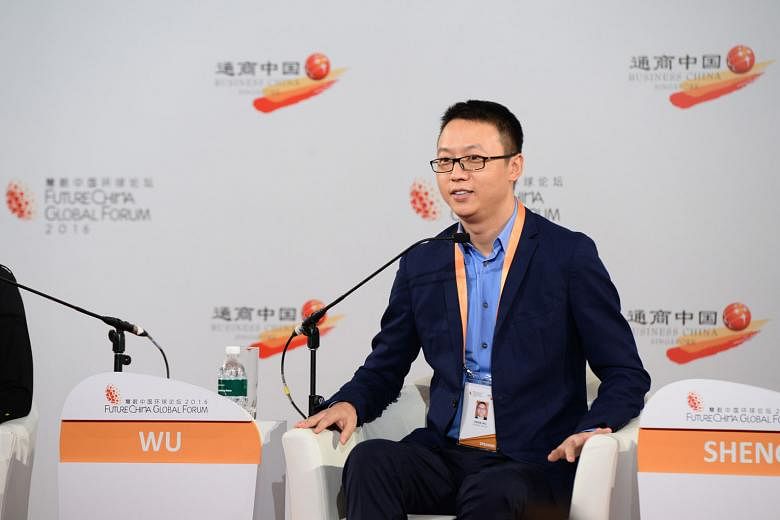Chinese technology companies will draw much closer to South-east Asian tech companies than their Western counterparts - and Singapore is well-placed to ride on the growth of this collaboration.
Mr Eddie Wu, co-founder and senior vice-president of the giant Alibaba Group, is confident of growing collaboration between Chinese and South-east Asian tech firms, seeing it as "an important trend".
"In five to 10 years, the relationship between Chinese Internet companies with South-east Asian Internet companies will be more important than South-east Asian Internet companies' relationship with European and American companies," he said in Mandarin.
Mr Wu sees increasing collaboration as an important development because new Internet products, such as movie recommendations on e-commerce platforms, are closely linked with data insights.
Data insights, in turn, are derived from user behaviour. And in this regard, there is plenty of room for South-east Asian and Chinese firms to cooperate as consumers in both these areas share similar culture and urban lifestyles, he said.
Mr Wu was taking part in a panel discussion at the FutureChina Global Forum gala dinner on Monday, held at the Shangri-La Hotel.
Mr Wu, who is also managing director of Alibaba Singapore, is seen as one of the Chinese e-commerce giant's rising stars. The former head of mobile at the firm played a key role in Alibaba's businesses, including Taobao and Alipay.
Alibaba has set its sights squarely on South-east Asia. It acquired in April a controlling stake in Singapore-based online retailer Lazada for about US$1 billion (S$1.35 billion), its largest overseas investment so far.
Lazada operates sites in six South-east Asian markets, including Indonesia and Malaysia, and the deal brings Alibaba closer to its goal of getting at least half of the company's revenue from overseas.
Panel moderator and Business China chief executive Sun Xueling posed a question to panellists about the opportunities and challenges for Singapore's efforts to build up a digital economy.
Mr Wu emphasised that because of its small domestic market, Singapore must look to other Asean nations and position itself as a regional connecting hub.
He said that many Chinese firms which have invested in South-east Asian tech companies regard Singapore as a regional headquarters for engaging with China and as a hub for gathering talent.
He said that "Singapore has the advantage of being Mandarin- speaking" and that Singapore could be positioned as a South-east Asian hub for tech talent.
Mr Wu was asked by an audience member about Alibaba's logistics plans in South-east Asia, as its logistics arm Cainiao has been at the heart of its e-commerce success.
"According to logic, as long as e-commerce develops, delivery services will keep growing... According to my personal judgment, there could be a possibility here but that is also dependent on national circumstances. I cannot tell in precisely what form delivery companies will show up," he responded.


